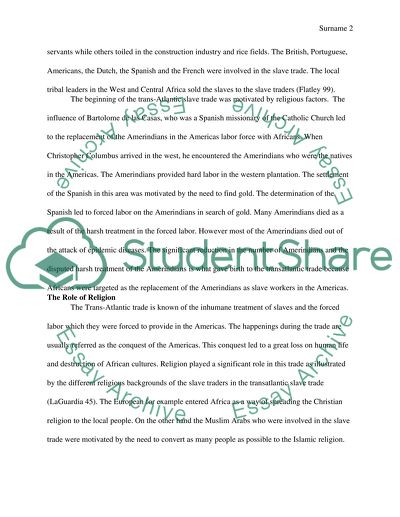Cite this document
(“The Role of Religion in the Trans-Atlantic Slave Trade Essay”, n.d.)
Retrieved from https://studentshare.org/history/1438845-the-role-of-religion-in-he-transatlantic-slave
Retrieved from https://studentshare.org/history/1438845-the-role-of-religion-in-he-transatlantic-slave
(The Role of Religion in the Trans-Atlantic Slave Trade Essay)
https://studentshare.org/history/1438845-the-role-of-religion-in-he-transatlantic-slave.
https://studentshare.org/history/1438845-the-role-of-religion-in-he-transatlantic-slave.
“The Role of Religion in the Trans-Atlantic Slave Trade Essay”, n.d. https://studentshare.org/history/1438845-the-role-of-religion-in-he-transatlantic-slave.


